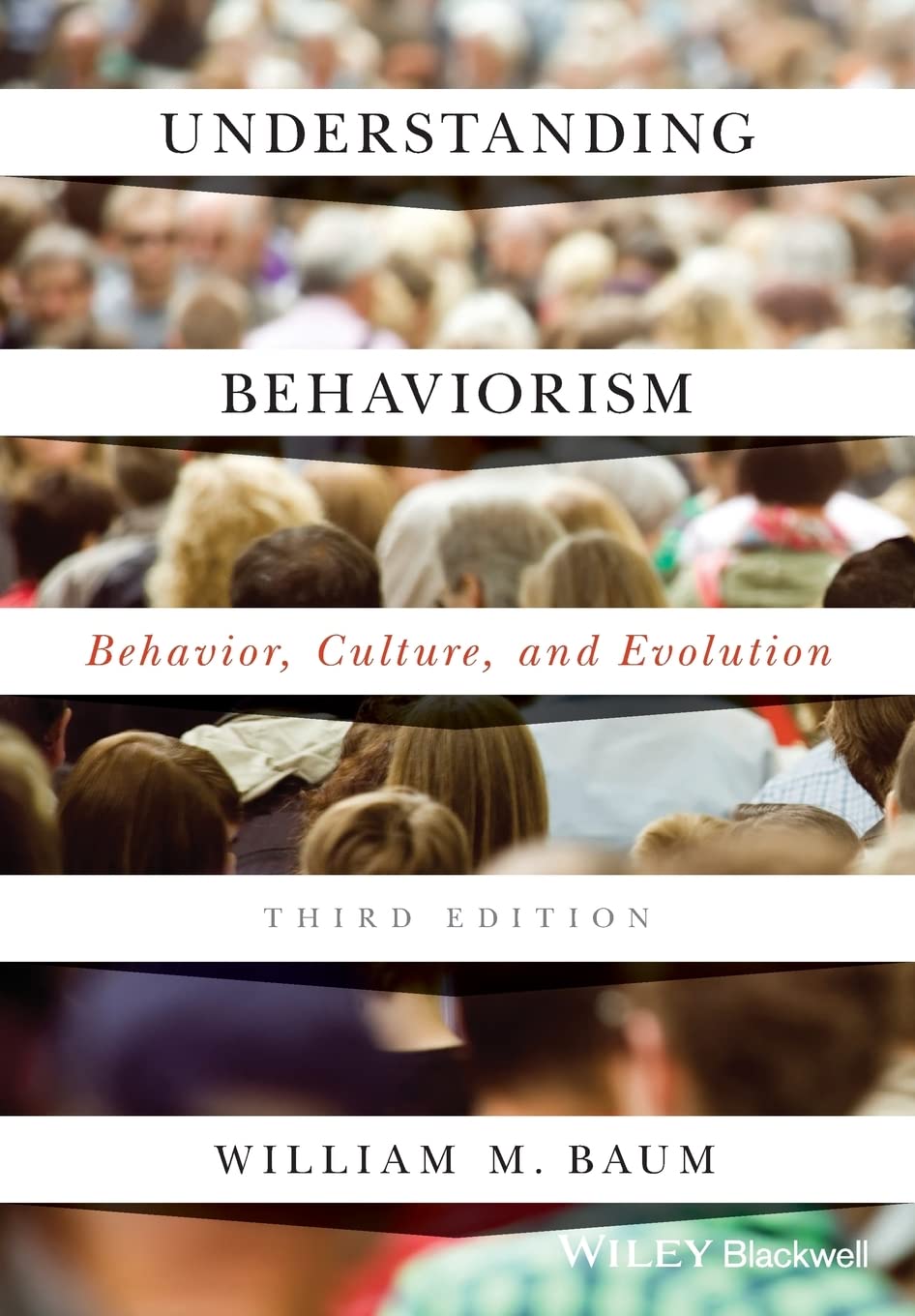


Full description not available
V**T
Great Source for Those who want to gain a better understanding of behaviorism in general.
This book provides an extensive philosophical analysis on radical behaviorism, and it debunked those who have associated radical behaviorism as a dogmatic field that only focused on humans/animals’ behavior through observable Measurement by the public eyes.
O**G
Grade A++
Just as I expected with no issues. Very smooth transaction and shipment.
S**S
Great book for the philosopher
Personally, I get sucked into books like these and spend hours reading chapter after chapter. This is one of my favorites on behaviorism and I have read it four times already! If you enjoy the psychology of behaviorism you will definitely enjoy this book.
M**W
A deep dig into behaviorism
Students working toward an education degree and teaching credentials learn about various learning theories. They evaluate the tenets, watch the principles in action, and come to an evaluation of the relative merits of each theory in nurturing and aiding student growth.Not surprisingly, behaviorism is among the more rudimentary and authoritarian methods. Other learning theories that tend to resonate more deeply with modern educators are those such as constructivist (visibly building learning together, teacher and students together) and sociocultural learning, in which people’s source cultures are privileged and brought into the classroom, with a perspective that multiple sources and influences make for a richer and more textured nurturing of learning and critical thinking.But before a person can understand the relative merits of behaviorism — and there are some — it is necessary to understand its development and its intricacies. Only after doing so can this theory be evaluated on a factual basis, and useful principles extracted. (One of the few that I retained for high-schoolers was the period-dismissal procedure, for example.)Is this book difficult? Definitely. I would posit that for many readers, at least some of the difficulty is intrinsic to the subject itself.
J**A
Great Condition But…
Everything about this book was great, however, as I was placing my tabs to make finding chapters easier, I noticed that pages 159 and 160 are missing. Did anyone else notice this? Is it a publication error?
K**Z
Cogito, ergo sum- Descartes
Dr. Baum discredits anything that cannot be observed and measured by mankind's current ability. This includes will power, reason, hope, anguish, etc. If it is not observable/measurable, it can be discredited. Determinism states that "behavior is determined solely by heredity and environment" according to Baum. He does not advocate for the notion of free will. He discredits Judeo-Christian values as hypothetical constructs. He deems "God" as an unsatisfactory conclusion. He openly states that Rene Descartes' "je pense donc je suis" impedes the scientific approach. This is unsatisfactory. It is an ignorant assumption to say that Descartes is wrong because he believes in the power of thinking internally. He goes on to attack his 1500s world view, but not the quintessential notion that people can think and make decisions far beyond their environmental and hereditary factors. Thinking, imagining, day dreaming, hoping, wishing, etc. are not observable and measurable. But one must ask: why discredit reason, work ethic, belief, etc. Because behaviorism would not work as a science. Only by believing that one can explain and control all situations to manipulate a person's behavior can behaviorism work. If there are internal (private) events like reasoning and processing that are not predictable, then a person cannot be manipulated by external environmental factors and behaviorism would not work. In order for behaviorism to work, determinism and complete manipulation of environmental factors must be achieved. Thus, Baum works hard to discredit anything that cannot be explained by determinism. He discredits many great philosophers and scientists because they do not fit into his narrative.
M**H
Life changing... literally
I have 4 college degrees in the social sciences. In my 12 years of college, I have never come across a textbook like this. The material in this book didn't just give me new knowledge, it shifted my entire perspective on behavior. Everything I thought I knew about behavior was wrong. It is thought provoking and complex. Read it carefully, making sure you understand each piece as you go, and it will give you the gift of discovery and a profound new perspective.
P**L
Evolucionismo e BR
Clareza e qualidade da tradução
T**F
Fantastic.
Thorough and informative book, which gives you everything you need to pass the exam, including the mock exam papers. Also useful to keep and refer back to after your studies are over.
J**D
Behaviourism
This is a good text book to explain Behaviourism and the thinking of behavioural scientists. Probably very useful during a university course or for those who know at least a bit already.If you come from a related field you might find yourself arguing with the book. The Author is quite dismissive of Philosophy, and seems to ignore some writers (Hume sprang to my mind) in discussion of some ideas. I also wondered how you would reconcile modern Physics thought, for instance that what we see is an artifact and nothing like the reality, to the idea that talking about a separation between reality and how we perceive things is a false dichotomy.So basically this book is best read by accepting the way of thinking and seeing how that works out in real world situations. Moving on to such issues as "Responsibility" and its consequences. And eventually to the Behaviourists ways of explaining ideas such as Culture and Religion.A useful and thorough book
K**O
Tinder dry, one for the reference shelf, not for a bit of light readin...
I have a Baum first edition that I picked up when I was training to be a nurse twenty odd years ago. It was a very dry and academic work then, with a language style that I would say (even for an academic text) was virtually inaccessible. I was hoping that by now (revised 3rd Ed) the writing style would have been a little more accessible, that hope appears to have been in vain. I’ve dipped into this for information on points that cross over into my nursing discipline (mental health), which is what I used the first edition for, but it’s not one of those books you would read or work through from start to finish, I don’t think anyone would cope. If this is your area of expertise or study then this book will be of some use, bear in mind however that this is written with the American market in mind and some of the ideas contained within play particularly to that market.
M**7
Well written book about a subject that should be consigned to the history books.
Studied Rats & Stats 30-odd years ago and found it appallingly limited even then, when I had little life or work experience and even less academic knowledge, but to disciver that Behavourism is not only alive and well, but still being taught as a current subject rather than an historical one, is quite depressing. It might be a useful technique in training dogs or managing toddlers but to extrapolate it into the areas which this book does, is beyond the pale. It is patently wrong-headed as it completely denies the existence of anything beyond observable behaivour and the whole stimulus/response scenario - and now it is mixed in with the also-mechanistic views of evolutionism. Epigenetics clearly has not yet made its presence felt - or else, like everything else, it is being ignored or denied.If you are a fan of this theory you will love this book - but not this little black duck.
Trustpilot
2 months ago
3 days ago